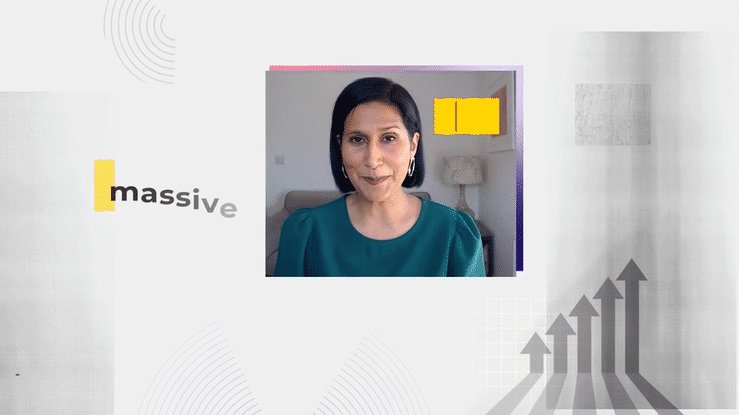
Research Comms
Welcome to Research Comms, the place where research communication specialists can find useful information, insights, resources and inspiration for sharing knowledge in the digital age.
Research Comms Podcast: Changing landscapes: telling stories from Antarctica against a backdrop of climate change and an evolving media
Athena Dinar is Deputy Head of Communications at the British Antarctic Survey (BAS) where she’s spent over two decades conveying the captivating magic of Antarctica and the vital research scientists carry out there.
Research Comms Podcast: Unpacking ‘impact’: What does it mean, and how do you know if you’re achieving it?
Professor Mark Reed is a Professor and Research Centre Director at Scotland’s Rural College (SRUC) as well as the founder and Chief Executive of Fast Track Impact, an organisation that provides researchers with evidence-based tools and training to empower them to use their work to change the world for good.
Research Comms Podcast: How can research-adjacent professionals pave the way for a more collaborative research and innovation ecosystem?
Sarah McLusky is a Research-Adjacent Trainer and Consultant who works with universities in communications and engagement, education and curriculum enhancement, training STEM ambassadors and organising large scale outreach events, as well as hosting the recently-launched Research Adjacent podcast, among others.
Research Comms Podcast: Fusion energy: How to prepare the world for transformative technology
Celestine Cheong is Head of External Communications at the UK Atomic Energy Authority. In this episode of Research Comms she talks about the work of UKAEA to push for the delivery of sustainable fusion energy, about the challenges of communicating science that is at times, very complex, and about managing public expectations around the development of technologies that have the potential to transform society.
Research Comms Podcast: How can we improve understanding of artificial intelligence to make sure it works for everyone?
Sophie McIvor is Director of Communications and Engagement at the Alan Turing Institute, the UK’s national centre for data science and artificial intelligence. In this episode of Research Comms we discuss why the public needs to be engaging with emerging technologies like AI, how people have more power than they think when it comes to influencing the progression of such technologies, and the importance of participatory research.
How to communicate your research using animation
Would you like to transform your research into an animation to help disseminate your findings? Here are our top tips to help you do just that!
Research Comms Podcast: What relationship do the UK’s young people have with science and scientists? And how can we increase their engagement with STEM?
In March 2022 the British Science Association published a report examining the attitudes of young people in the UK to science. In this episode of the Research Comms podcast, the BSA’s outgoing Chief Executive, Katherine Mathieson, talks about the reports findings, speculating on why young people do not feel sufficiently engaged with science, the impact of the Covid pandemic on their appetite for science, and why now is a golden opportunity for us to rework young people’s relationship with science.
Research Comms Podcast: What lessons can we learn from the Covid pandemic about how to communicate public health during a time of crisis?
In this episode of Research Comms, Glen Nowak talks about the core concepts that underpin crisis communication, the importance of documenting research during crises, the special challenges of a virus with unexpected longevity and messaging around the unknowns.
How to record video remotely (so it doesn’t look terrible)
Orinoco Communication shares a simple six step guide to making the most of your home recording environment so that your video serves you and you can disseminate messages with confidence.
Research Comms Podcast: How to use Linkedin to communicate your organisation’s research (and grow your own network at the same time)
In this episode of Research Comms Laura Hannan talks about the LinkedIn wisdom she’s gleaned from 15 years of experience on the platform. Laura highlights the advantage that research communicators have that can increase their impact on LinkedIn - read and listen on for top tips.
Research Comms Podcast: Amy Mollett talks about social media in higher education, in Parliament and its role in research communication
In this episode of Research Comms Amy Mollett talks about the exciting early days of blogs and twitter, of her social media work at LSE, of the digital services team in Parliament. Tips for getting started, maintaining digital wellbeing and tracking what’s important abound.
Using Video to Enhance Events
Orinoco Communication shares strategies for making the most of your event by using video - to encourage attendance, boost engagement and save time answering the same delegate queries.
2022 Year Ahead
Orinoco Communications share five top tips for using video to ensure research gets the reach it deserves.
Research Comms Podcast: Suzanne Fisher-Murray talks about the differences between development and academia.
In this episode of Research Comms Suzanne Fisher-Murray talks about the differences between development and academia, the power of radio for sharing stories and influencing behaviour, what truly participatory communications look like and the value of creating personas for strategic communication with communities that care.
Research Comms Podcast: Ashley Jennings
In this episode of Research Comms Ashley Jennings talks about the thriving innovation and startup scene in Austin and across Texas, explaining the purpose and value propositions of Texas Innovation Center. Ashley also discusses the methodology behind preparing startups and innovators for the market and the importance of storytelling and relationship building.
Research Comms Podcast: Matt Russo
In this episode of Research Comms Matt Russo talks about what sonification is, the skills required to create sonifications, his work engaging students with data about the universe through sonification, and the musical solar systems that Pythagoras and Kepler were looking for.
Research Comms Podcast: Tom Chivers
In this episode of Research Comms Tom Chivers talks about the media during the pandemic, about the pre-requisites for journalism and the tension between attracting a readership and writing serious news stories, and he discusses his book How to Read Numbers: A Guide to Stats in the News (and Knowing When to Trust Them)
Research Comms Podcast: Dr Kat Arney on Podcasts, Science Storytelling and more…
Kat Arney’s enthusiasm for storytelling has been with her since childhood, when she devoured books and performed plays and music with her sister. She then fell in love with science, going on to obtain a degree in natural sciences and a PhD in developmental biology. But lab life wasn’t for her. She still felt the call to tell stories and so she combined her passions and became a professional science communicator. In this episode of Research Comms she shares her experiences and talks frankly about some of the big issues facing the science communication sector.
Research Comms Podcast: Interview with vaccine scientist, Dr. Peter Hotez
Dr. Peter Hotez is a pediatrician and vaccine scientist at Baylor College of Medicine in Texas. More recently he has also become an outspoken and prominent advocate for vaccines in the face of the growing anti-vaccine movement. In this episode of Research Comms, Dr. Hotez opens up about why he is so angry with those spearheading the anti-vaccine movement.
Research Comms Podcast: Sam Illingworth on how to communicate the science of climate change
In this week’s episode of Research Comms I welcome back old friend of the podcast, Sam Illingworth: scientist, science communicator and poet. Sam communicates all kinds of STEM topic but specialises in environmental science and he was recently involved with the research, writing and publication of a report exploring how climate specialists are communicating the issue of climate change and global warming to the UK public.




















